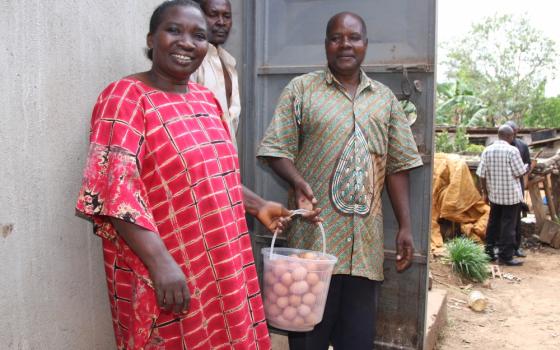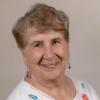Ever since the passage of the Sustainable Development Goals (SDGs) last September the discussion has moved to implementation. Unlike the Millennium Development Goals (MDGs), the SDGs are the product of input from all strata of society throughout the world, not just ambassadors and politicians. The burden of responsibility for their fulfillment rests not just on the developing countries, but on a true partnership between those that are developed and developing.
I was the NGO representative at the United Nations for eight years for the Sisters of Charity Federation. I worked on multiple issues at the U.N. in the areas of social and sustainable development and also had the opportunity to travel extensively. I visited India, Korea, Colombia, Spain, France, Italy, Germany, St. Lucia, Puerto Rico, Dominica, Guatemala, Mexico, Uganda, Cameroon, Kenya, Rwanda, Tanzania, Canada and Brazil.
In each country, whether developed or developing, it became apparent that real progress takes place only when people play an active role in their own development and are not simply recipients of handouts. These travel opportunities gave me the advantage of seeing how what is happening on the ground is integral to decisions and policies adopted at the U.N. and that the SDGs, seventeen in number, cannot stand in isolation, but are interdependent.
A project in Uganda supported by Microfinancing Partners in Africa (MPA) provides an excellent example of the interconnectedness of the SDGs. MPA was started by Precious Blood Sr. Toni Temporiti in 2006. Following a sabbatical traveling through multiple countries in East Africa where she had the opportunity to talk with many local people, she realized that the people she met were not looking for hand-outs, but simply the opportunity to improve their own lives.
After attending a program on microfinancing at the Coady Institute in Antigonish, Canada, and meeting and talking with Muhammad Yunus of Bangladesh, the founder of microfinancing, she realized that there was no need to start a new project. She looked at projects that were already successful to provide additional funding for their continued growth.
Father George Ssemmombwe, a priest from the diocese of Masaka,Uganda contacted Sister Toni and asked if she would be willing to help with a cow project started by Bishop John Baptist Kaggwa. The bishop realized that if he was ever to meet the spiritual needs of his people he would also have to address the extreme poverty in which they lived. He began with a few cows and first worked with the families to prepare to receive one. The family had to build a stable, grow grasses for the cow and demonstrate personal cleanliness.
Bishop Kaggwa asked MPA for funds to purchase additional cows as there were many families interested in the project. Sister Toni visited Bishop Kaggwa in Uganda and saw the value of the project for herself. Over the past five years MPA has contributed funding for more than 800 cows.
The cow is a living loan. Each costs $800 and the families are responsible for repaying the loan. The family receives a pregnant cow and when the calf is born they agree to raise it for nine to 12 months and then pass it on to another family. This cancels $400 of their debt.
The cows yielded 18-20 liters of milk per day which was more than any one family needed, so the bishop started a dairy. He set up collection stations throughout the district so that the farmers could sell their extra milk, enabling them to cancel the remainder of their debt. Once the debt is cancelled the proceeds from all future sales are retained by the families. The bishop secured funds for the equipment needed for the local collection stations, but allowed the farmers to buy the collection stations and form cooperatives. The main dairy in Masaka sells dairy products throughout the district.
Working with local engineers the Bishop also started a biogas project using the waste products (urine and feces) from the cows. Families have gas for cooking and lighting their homes with no cost other than the initial investment in the biogas infrastructure. Thus children can go to school because they no longer have to go out in search of firewood. They have light to study by and the trees are saved.
On a trip to Uganda as a member of the Advisory Board of MPA I visited a number of families who had received a cow. One such family was that of Peter and Josephine. It is difficult to convey the absolute delight they shared with us as they told their story. They had received one of the first cows from the bishop about nine years ago. They now have two cows, two pigs and a thousand chickens, but their greatest joy was putting seven of their children through the university.
We visited families who were at different stages in the program. Some had received their cow only a year ago, but the difference in people’s lives was already apparent. Children were delighted to be in school and all had learned how to milk the cow. We brought a cow to Pauline, a single mother of two, who was the first in her community to receive one. The entire community, Muslims and Christians, turned out to celebrate with her. Pauline proudly showed us all of the improvements she had made in order to receive a cow. After she received the cow the festivities began with drumming, dancing and feasting.
We visited many families and in each case there was tremendous enthusiasm and joy as the family members shared how they had worked together to prepare for the cow and the difference that cow was making in their lives. They showed us their newly constructed stables and the latrines they had built to improve sanitation for their families. They proudly showed us their new organic gardens, another initiative of the diocese.
The bishop's latest initiative is the opening of a breeding farm on diocesan land so they can raise their own cows and reduce the cost for each family.
The interconnectedness of the SDGs is readily apparent in this project. The cow enabled the family to get out of poverty (SDG #1), feed their families (#2), provide an education for their children (#4) provide for gender equality as both boys and girls completed a university education (#5) and now hold very responsible jobs (#8), provide for economic growth (#8), reduced inequalities (#10), and is leading to sustainable communities (#11).
The Bishop feels strongly that all people deserve to live in dignity and have the opportunity for a better life so the project includes all the members of the community, Muslim as well as Christian. At a time when there is often fear and suspicion among Christians and Muslims, the people of Masaka live in harmony with each other. We attended a Catholic Mass at the local Muslim school where space is made available for the Eucharistic Celebration each Sunday.
The theme of MPA is "From poverty to possibility," and that was so evident in the lives of the people we met. These people truly were involved in their own development. From the individual families to the farmers in the cooperatives there was a sense of accomplishment, but also a sense of hope as they shared their dreams for themselves and their children. MPA believes that "coming together is a beginning, keeping together is progress, but working together — that is success."
This is only one project of MPA. Other projects in Tanzania and Kenya are totally different, but in each case involve a small loan which yields big changes in the lives of the borrowers and their families.
The SDGs are an excellent initiative, but require a partnership (SDG #17) that provides financial resources and expertise, but also allows for local participation and initiative. Innovation and infrastructure (SDG #9) can only be realized when all parties are involved in the development process and realize that their participation is essential to real and lasting change.
[Caroljean Willie is a Sister of Charity of Cincinnati who has a Ph.D. in Multicultural Education. She has extensive experience working cross-culturally throughout the United States, the Caribbean and Latin America.]





